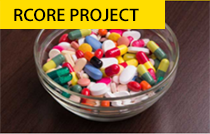
Report Adverse Reaction

Approved fees Schedules

Products Recall And Alert

For Stakeholders

Submit a Complaint

FAQs

Submit Advert Application

Submit Advert Application

Consumer Education
News & Events
Latest News
2024-08-12 00:00:00
ONLINE PURCHASE OF MEDICAL DEVICES FOR PERSONAL USE2024-04-17 00:00:00
Ghana's COVID-19 Safety Monitoring Effects Receive Global Acclaim2024-04-05 00:00:00
FDA AND AFROCET MONTGOMERY MEETS STAKEHOLDERS2024-03-13 00:00:00
NEW FDA FEES AND CHARGES EFFECTIVE MONDAY 18th MARCH 20242024-02-01 00:00:00
DRAFT GUIDELINE FOR PUBLIC CONSULTATION "FDA GUIDELINE ON IDENTIFICATION AND DATA CAPTURE FOR PHARMACEUTICAL TRACEABILITY"2023-11-17 00:00:00
JOHN OWUSU GYAPONG IS THE NEXT ARUA SECRETARY-GENERAL2023-11-17 00:00:00
FDA LAUNCHES THE NATIONAL TOBACCO CONTROL STRATEGY2023 WORLD NO TOBACCO DAY-GROWING SUSTAINABLE FOOD CROPS INSTEAD OF TOBACCO
The World No Tobacco Day (WNTD) is commemorated around the World every year on 31$ May to emphasize the harmful effects of tobacco products on people's health. This year, the Ministry of Health in collaboration with Food and Drugs Authority (FDA), World Health Organization, Ghana Health Service, Vision for Alternative Development (VALD) and other Civil Society Organisations join in with the focus on growing sustainable food crops instead of tobacco. The theme for this year's commemoration is "We Need Food, Not Tobacco."
The WHO estimates that tobacco is grown as a cash crop on an estimated 4 million hectares of land in more than 125 countries, clearing an estimated 200 000 hectares of forest each year in the process. Given the state of the global food supply today, tobacco is grown on the small amount of arable land that could be used to grow more food crops. Due to the increased likelihood of desertification in tobacco farmlands, this practice has resulted in the death of thousands of trees and had a much worse impact on ecosystems. According to the Tobacco Atlas, more than 6,700 Ghanaians die every year due to tobacco-related illnesses of which sixty-six percent (66%) of these deaths are individuals under age 70. Also, about 18% of Ghanaian lives are lost from exposure to secondhand smoke. Tobacco-related illness accounts for 3% of all deaths in the country.
Tobacco is a significant threat to health and sustainable development. Tobacco causes premature death and preventable disease such as cancer, cardiovascular diseases, stroke, hypertension among others that result in high health costs and economic losses, widens socioeconomic inequalities, and impedes progress towards the achievement of the Sustainable Development Goals (SDGs). Tobacco cultivation contributes to deforestation and soil degradation which disrupts the fertility of the land. The cultivation and production of tobacco greatly impacts the future of agriculture and food security due to long-term negative effects on the environment and its contribution to climate change.
Considering the prevalent global crisis, scarce productive land and water which could have been used for growing more food crops is rather used for cultivation of tobacco. This practice results in thousands of trees being destroyed to make way for tobacco cultivation.
In view of the severe effects and impacts of tobacco use on the world's population, the World Health Organization (WHO) and other global partners continue to raise awareness among the public on the impact of tobacco - from cultivation, production
THE FDA MISSION
The FDA exist to ensure the safety, quality and efficacy of human and veterinary drugs, food, biological products, cosmetics, medical devices, household chemical substances and clinical trials, and the control of tobacco products through the enforcement of relevant standards to protect public health.

Subscription Management Centre












